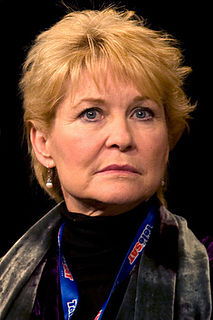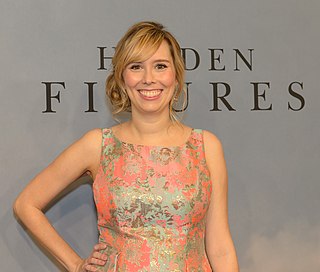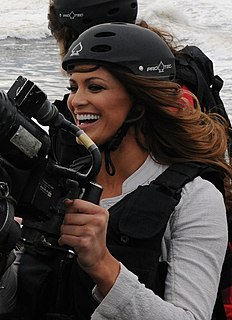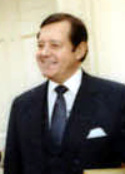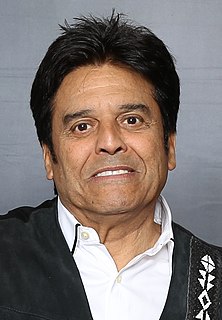A Quote by Fiona Apple
If I had a kid, and I had a choice between teaching somebody how to avoid trouble, or teaching them how to get out of it, I'd teach them how to get out of it.
Related Quotes
I've been a teacher all my life. I've had my own dance studio, my own acting studio for 18 years out here... I'm just a natural teacher. I teach on all my healing work now. I think actors teach any time they work anyway. We're teaching emotions, we're teaching how to deal with emotions, we're teaching how to get around issues and deal with them. Actors are some of the best teachers in the world, because they're teaching you through entertainment, and you don't know you're getting a message.
I was writing a story, 'The Artistic Career of Corky,' about two young men, Bertie Wooster and his friend Corky, getting into a lot of trouble, and neither of them had brains enough to get out of the trouble. I thought: Well, how can I get them out? And I thought: Suppose one of them had an omniscient valet?
I began teaching my son how to shoot when he was two, starting with the basics of a BB rifle. My theory is that kids get into trouble because of curiosity—if you don’t satisfy it, you’re asking for big problems. If you inform them and carefully instruct them on safety when they’re young, you avoid a lot of the trouble. My son has learned to respect weapons. I’ve always told him, if you want to use a gun, come get me. There’s nothing I like better than shooting.
One of my favorite courses to teach is when we go to the Air Force. We've done a few at Air Force bases. What's great about that is that it's a one-week course. It's five days and we work with them for about eight hours a day. We're not only teaching them self-defense, but we're also teaching them how to teach it on base to others.
I didn't want to teach my kid how to read, so I used to read to him at night and close the book at the most interesting part. He said, “What happened then, daddy?” I said, “If you learn to read, you can find out. I'm too tired to read. I'll read to you tomorrow.” So, he had a need to want to learn how to read. Don't teach children how to read. Don't teach them mathematics. Give them a reason to want it. In school, they're working ass-backwards.
The business schools could do a better job teaching face-to-face management, the actual work of organizing and helping along the efforts of others in the organization. The more quantitative disciplines have gotten more attention, often more research dollars. Areas like organizational science or, even mushier, leadership have had more trouble settling on what it's important to teach, and how. It's rather like strategy itself, which as I argue in the book, has had trouble through most of its history figuring out how to incorporate people, their motivation and ability, into its calculations.
Teaching literature is teaching how to read. How to notice things in a text that a speed-reading culture is trained to disregard, overcome, edit out, or explain away; how to read what the language is doing, not guess what the author was thinking; how to take evidence from a page, not seek a reality to substitute for it.
You've never seen me debate anybody. On anything. Ever. My investment of time, as an educator, in my judgment, is best served teaching people how to think about the world around them. Teach them how to pose a question. How to judge whether one thing is true versus another. What the laws of physics say.
Teaching I realized took up a lot of my time. I was a kind of a teacher that spent time with students, spoke to them after class, tried to help them out. I'd talk with them personally about their work and try to get out of them what they were thinking about, forcing them to thinking seriously and not just falling back on all the ideas that they had picked up someplace. And so I took my job teaching very seriously and that - as a result, it took up a lot of time.

